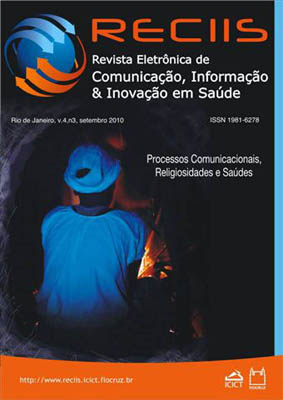Health care for terminal patients: between medical practices and religious beliefs
DOI:
https://doi.org/10.3395/reciis.v4i3.661Keywords:
doctor-patient relationship, spiritual assistance, palliative care, health-illness process, lifedeathAbstract
The new Brazilian Code of Medical Ethics, which became effective as of April 13, 2010, addresses terminal and irreversible clinical situations. In such cases, doctors are advised to provide appropriate palliative care for patients under their responsibility instead of performing unnecessary diagnostic and therapeutic procedures. The Code’s process of approval is examined in this article, as well as the changes occurred in Brazil within a few decades regarding health care for clinical profiles considered as terminal or out of the therapeutic chances of cure. Although the terms orthothanasia, dysthanasia and euthanasia are not used in the new Code of Medical Ethics, they are addressed in this article together with the different points of view of religious groups on the process of dying. A “good death”, with dignity, or the production of a umanized death has received the attention of palliative aregivers, who postulate the need to provide spiritual assistance to ill patients and their families. Surveys with palliative care teams and the medical ethics new code’s text are the background for the debate over the dilemmas faced by all those practically involved in the process of dying. Finally, focus is placed on the doctor/patient/family relationship in this recent kind of care, because such interaction is intertwined with power relations, where different values and religious beliefs can be seen.Downloads
How to Cite
Issue
Section
License
Author’s rights: The author retains unrestricted rights over his work.
Rights to reuse: Reciis adopts the Creative Commons License, CC BY-NC non-commercial attribution according to the Policy on Open Access to Knowledge by Oswaldo Cruz Foundation. With this license, access, download, copy, print, share, reuse, and distribution of articles is allowed, provided that it is for non-commercial use and with source citation, granting proper authorship credits and reference to Reciis. In such cases, no permission is required from the authors or editors.
Rights of authors’s deposit / self-archiving: The authors are encouraged to deposit the published version, along with the link of their article in Reciis, in institutional repositories.












